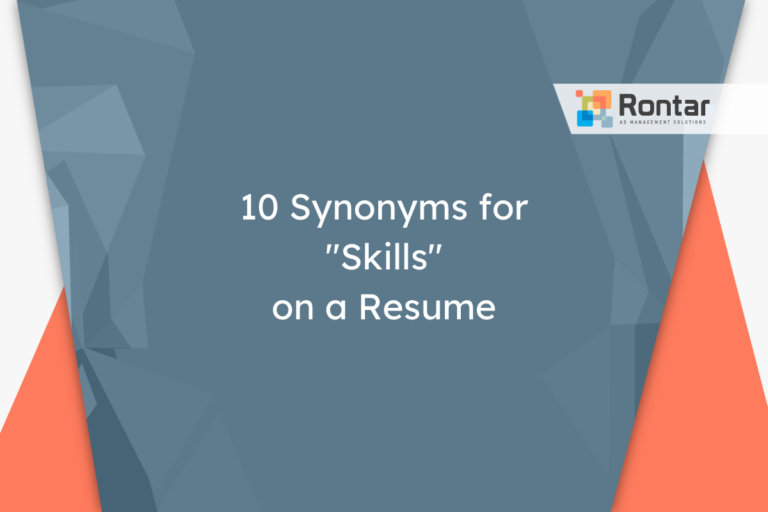10 Other Ways to Say “Safe Travels”

Saying “safe travels” is a common way to wish someone well before they go on a trip. However, sometimes you might want to use a different phrase to make your message stand out or feel more personal.
In this article, we’ll explore 10 alternative ways to wish someone a safe and pleasant journey. Each option comes with explanations on when and how to use them effectively, along with sample email messages to show them in action.
Is It Correct to Say “Safe Travels”?
Yes, it is entirely correct to say “safe travels.” This phrase is often seen as informal and polite, making it suitable for casual conversations or messages. Although it’s more on the informal side, its use is widely accepted, and it conveys a warm, considerate message to someone who is about to embark on a journey. However, in very professional or formal settings, one might opt for a different phrasing to match the tone of the situation.
Generally, “safe travels” is used when someone is leaving for a trip or has a journey ahead. This can be in personal conversations, through text messages, emails to close colleagues or friends, or when saying goodbye in person. The phrase wishes them a journey free from harm or danger.
Here is an example of using “safe travels” in an email:
Greetings Linda, I just wanted to send a quick note before you head off on your adventure. It's been fantastic hearing about your plans, and I can't wait to see all the photos and hear about your experiences when you get back. Have a wonderful trip, and safe travels! Best regards, Mark
Pros:
- It’s quick and easy to say or write.
- It conveys a warm, caring sentiment.
- It’s widely understood and accepted.
Cons:
- It may be too casual for certain professional contexts.
- It doesn’t specify what kind of safe journey you are referring to (e.g., free from illness, accidents, etc.).
Someone might want to use an alternative phrase to “safe travels” if they find themselves in a professional setting or if they want to convey a more specific kind of safety. For example, wishing someone “a healthy journey” in the midst of a health crisis adds a layer of specificity that “safe travels” lacks. Additionally, some might seek synonyms or alternatives to refresh their vocabulary or to personalize their message more closely to the recipient’s situation. The right synonym or alternative can make your wish feel more thoughtful and tailored to the person and the context.
10 Other Ways to Say “Safe Travels”
If you’re looking for a different way to wish someone well on their journey, here are ten synonyms or alternatives to “safe travels.”
- Have a safe journey
- Bon voyage
- Travel safely
- Have a pleasant journey
- Wishing you a safe trip
- May your journey be smooth
- Godspeed
- Safe journey ahead
- May you travel safely
- Enjoy your journey
1. Have a safe journey
This phrase is very close in meaning to “safe travels,” but it is slightly more formal. It’s a polite way to wish someone well, focusing on the safety of their journey. It’s commonly used in both personal and professional contexts, making it a versatile option. This alternative is great because it directly mentions the journey, making your good wishes clear.
This alternative is better suited for written messages or emails where a bit more formality is desired, but you still want to keep the warm tone of your farewell.
Here’s a sample message:
Greetings Brian, I heard you're heading out on a road trip this weekend. I hope you have an amazing time discovering new places. Have a safe journey! All the best, Samantha
2. Bon voyage
“Bon voyage” is a French phrase adopted into English that means “good journey.” It adds a touch of elegance and is informal yet polite. This phrase is perfect when you want to add a little flair to your farewell. It’s ideal for someone going on a significant trip, perhaps overseas or for a long duration.
This alternative shines in less formal contexts or when you want to add a personal touch to your message. It’s also well-suited for creative or personal emails, cards, and texts.
Here’s how you might use it in an email:
Dear Maria, It's been exciting to see all the planning you've put into your upcoming European tour. The adventure awaits! Bon voyage! Warmly, Oliver
3. Travel safely
This option is a direct informal synonym for “safe travels” that emphasizes the act of traveling safely. It’s straightforward and serves as a gentle reminder to take care during the trip. This phrase works well in both personal and professional settings, offering a kind send-off without feeling overformal.
Use this alternative when sending a quick text or email to friends, family, or colleagues, especially when you know they’ll be engaging in travel that might be risky or unfamiliar.
Here’s an example message:
Hello Jack, Just wanted to wish you luck on your upcoming hiking trip. Travel safely! Cheers, Diane
4. Have a pleasant journey
This phrase is similar to “safe travels” but with a focus on the experience being pleasant. It is more formal and polite, making it a suitable choice for professional emails or when you want to convey a sincere wish for an enjoyable trip. “Have a pleasant journey” goes beyond safety and wishes the traveler a good overall experience.
This option is a great choice when you know someone is embarking on a journey for leisure or vacation and you want to emphasize their enjoyment and relaxation.
Here’s a sample email:
Dear Rachel, I'm thrilled to hear about your upcoming vacation to Bali. It sounds like the perfect getaway. Have a pleasant journey! Best wishes, Lena
5. Wishing you a safe trip
This phrase is a direct, polite alternative to “safe travels,” making it suitable for both formal and informal contexts. It explicitly expresses your wish for the other person’s trip to be safe. This option is particularly effective in written communication when you want to ensure your message is clear and heartfelt.
It’s best used in situations where you want to highlight the importance of safety during the trip, such as when someone is traveling to a location known for extreme activities or potential hazards.
Look at this email sample:
Hi Kevin, As you prepare for your business trip to New York, I just wanted to reach out and express my hopes for a productive and successful visit. Wishing you a safe trip. Regards, Allison
6. May your journey be smooth
This alternative is a poetic and informal way to wish someone well on their travels. It focuses on the journey being free from difficulties or obstacles, making it a thoughtful and empathetic farewell. “May your journey be smooth” is less common and adds a unique touch to your wishes.
When you want your message to stand out or when addressing someone who appreciates creative language, this is a wonderful choice. It’s also nice for expressing care to someone who may be anxious about their travel.
An example of using this in an email:
Dear Elliot, I heard about your upcoming move across the country. It's a big step, and I admire your courage. May your journey be smooth. Take care, Nina
7. Godspeed
“Godspeed” is an old-fashioned, formal way to wish someone well. It has a solemn and serious tone, implying a deep wish for safety and success. This phrase is powerful in its brevity and the weight it carries. It’s best reserved for moments when you want to convey a profound sense of care and well-wishing.
This is suited for significant journeys, potentially life-changing moments, or when the traveler faces considerable challenges ahead.
A sample message could look like this:
Dear Harrison, As you embark on this humanitarian mission, your bravery and commitment to making a difference are truly inspiring. Godspeed. With respect, Claire
8. Safe journey ahead
This phrase adds a forward-looking perspective to wishing someone safety on their trip. It’s formal and polite, suitable for both professional and personal contexts. “Safe journey ahead” implies not just a single trip but future travels as well, offering a continuous wish for safety.
It’s particularly appreciated in ongoing professional relationships or when speaking to someone who frequently travels.
Here’s how you might use it in a message:
Dear Alex, With so many conferences lined up for you this season, it's going to be a busy time. We look forward to your insights upon return. Safe journey ahead. Best, Jordan
9. May you travel safely
This alternative puts a more personalized touch on the wish for safety, making it informal yet polite. It’s as though you’re sending a personal prayer or thought for their safety. It’s gentle and carries a sense of care and warmth, suitable for close relationships or when wanting to convey personal well-wishes.
This phrase is ideal for close friends or family members, especially when you have a genuine concern for their safety during their trip.
Consider this email example:
Hey Sophie, Can't believe you're finally going to see the Northern Lights! It's going to be an unforgettable experience. May you travel safely. Love, Emily
10. Enjoy your journey
Positioning enjoyment at the forefront, this phrase is informal and focuses on the traveler having a pleasant experience. While it doesn’t specifically mention safety, it implies a carefree and enjoyable trip. “Enjoy your journey” is perfect for when you want to emphasize the positive and exciting aspects of travel.
This alternative works best for casual situations or when wishing someone well on a trip that’s meant for relaxation and enjoyment.
Here’s an email example:
Hi Tom, I heard about your upcoming trip to Hawaii - sounds like paradise! Make sure to enjoy every moment. Enjoy your journey! Cheers, Linda
Final Thoughts
Choosing the right way to wish someone well on their travels can add a special touch to your farewell. Whether it’s a close friend, family member, or a colleague, the alternatives to “safe travels” provided here can help you express your well-wishes with a bit more personality or formality, depending on what the situation calls for.
Remember, the best messages are those that come from the heart and consider the recipient’s preferences and the context of their journey. By picking the right phrase, you can make your goodbye memorable. So, the next time someone you know is going on a trip, try using one of these alternatives to make their departure a little brighter.






